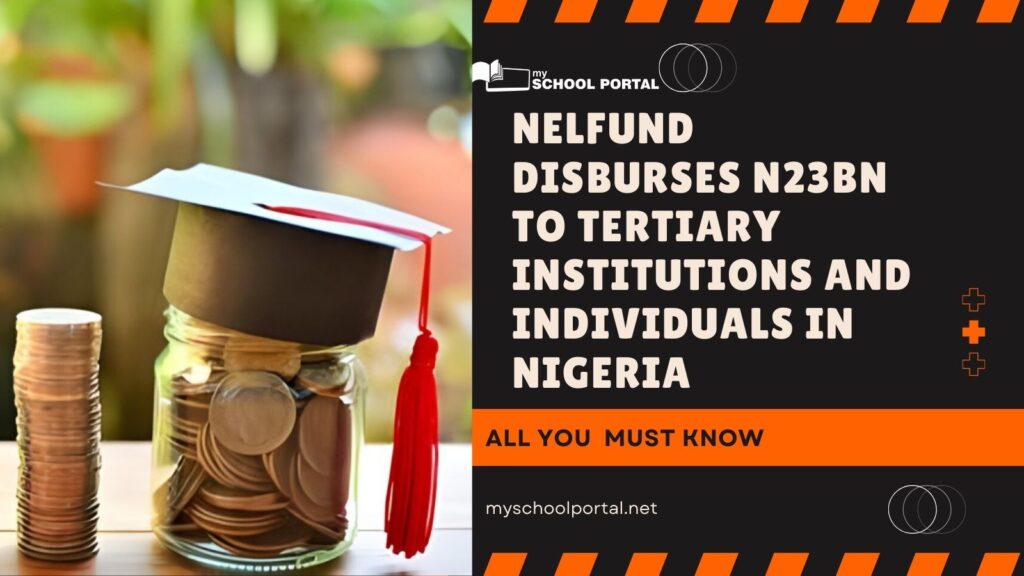The Nigerian Education Loan Fund (NELFUND), a federal government initiative, has distributed N23 billion to 128 tertiary institutions and individuals across the country. This effort underscores the government’s commitment to ensuring access to education and reducing financial barriers for Nigerian students.
Key Highlights
- Funding Breakdown
Institutions: N18 billion was allocated to tertiary institutions.
Students: N5 billion was disbursed for students’ upkeep, directly transferred to their bank accounts for monthly stipends.
- Loan Accessibility
NELFUND caters to Nigerian students in federal and state-owned tertiary institutions. The fund covers tuition fees, institutional charges, and living expenses. Applications are processed annually online, ensuring transparency and efficiency. - Vocational and Skills Training
Beyond academic loans, NELFUND supports vocational and skills training for Nigerians interested in government-approved institutions, fostering skill acquisition and economic empowerment. - Sources of Funding
NELFUND’s operations are primarily funded through:
- 1% of Federal Inland Revenue Service (FIRS) collections, estimated at N19 billion annually.
- Contributions from other agencies:
- EFCC donated N50 billion.
- TETFund has committed N141 billion, with N71 billion already disbursed.
- A legislative proposal aims to allocate 20% of TETFund’s proceeds to NELFUND.
- Repayment Flexibility
Loan repayment is contingent on employment:
- Graduates have a two-year grace period after completing NYSC.
- Repayment begins only after securing a job, with employers deducting 10% of salaries to remit to NELFUND.
- Unemployed graduates are exempt from repayment obligations.
Sustainability and Growth
NELFUND also invests funds for financial returns and solicits donations from stakeholders passionate about advancing education in Nigeria. These measures aim to sustain and expand the fund’s capacity to support more students.
This initiative represents a transformative approach to tackling education financing challenges in Nigeria, ensuring that financial constraints no longer hinder academic and skill development for citizens.
Related
Stay updated with the latest student resources and insights from My School Portal! Subscribe to our newsletter for fresh content delivered straight to your inbox—no spam, just value 😊











